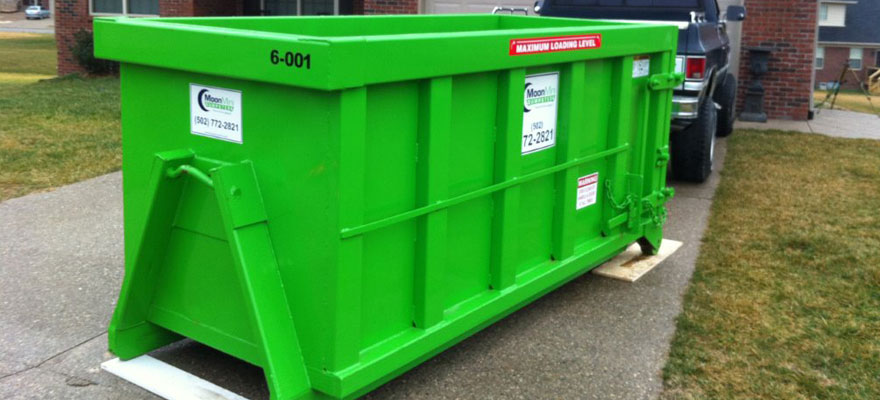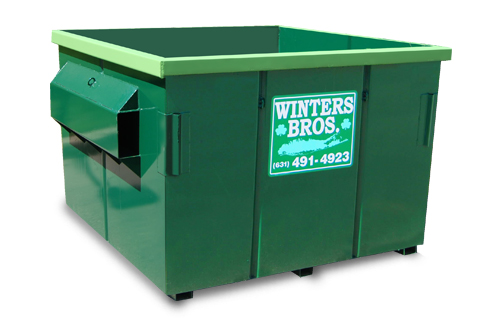Optimizing your dumpster rental experience entails greater than simply choosing a dumpster size. It calls for mindful factor to consider of a number of factors, including the rental period, dumpster kind, and regional policies. Precise waste quantity estimation and proper positioning of the dumpster are critical to making sure effective waste monitoring and price savings. In addition, understanding weight capacity, local ordinances, and strategically planning pickup and shipment schedules can assist decrease obese fines and task hold-ups. By understanding these key components, you can improve your waste management process and reveal a lot more ways to maximize your dumpster rental experience.
Determining the Right Dumpster Size
When taking on a project that requires waste removal, among one of the most critical decisions hinges on establishing the ideal dumpster size A dumpster that is as well little can lead to expensive overflows and additional fees, while one that is as well big can cause unnecessary expenditures and wasted space.
In order to stay clear of these problems, it's necessary to precisely estimate the volume of waste your task will certainly generate.
Factors to take into account when choosing a dumpster size consist of the type and quantity of products being gotten rid of, the schedule of space on-site, and any type of local regulations or restrictions.
Typically, dumpsters vary in dimension from 10 to 40 cubic yards, with the most common dimensions being 20 and 30 cubic yards.
It's also vital to evaluate the weight capacity of the dumpster, as surpassing the suggested weight can result in additional fees or perhaps damage to the dumpster.
Choosing the most effective Rental Period
Once the ideal dumpster size has been established, focus can move to picking the best rental duration, a vital aspect of the dumpster rental process that can substantially affect task expenses and efficiency.

The rental period need to be very carefully taken into consideration to assure that the dumpster is on-site for the necessary amount of time, without sustaining unneeded costs.
When choosing the very best rental period, consider the following variables:
Project timeline: The length of time will the project take to finish? Make sure to represent any prospective delays or setbacks.
Debris generation rate: Exactly how swiftly will waste be produced during the job? A much faster generation rate might need a shorter rental period.
Dumpster capacity: Just how usually will the dumpster need to be emptied? A larger dumpster may need a much longer rental period.
Budget constraints: What is the allocate the rental duration? A longer rental period may be more affordable in the lengthy run.
Selecting the Perfect Dumpster Type
The size of the dumpster is additionally crucial. A smaller sized dumpster may be ideal for smaller projects or those with limited area, while bigger dumpsters are better matched for huge projects that create a significant quantity of waste.
Additionally, consider the dumpster's product and weight capacity Some dumpsters are created for heavy materials like concrete or asphalt, while others are better matched for lighter products like drywall or flooring.
Understanding Local Regulations
Local statutes and guidelines can greatly influence the dumpster rental process, making it important to recognize the rules regulating waste disposal in your area.
Failure to abide by neighborhood guidelines can cause penalties, fines, and even project hold-ups. It's crucial to study and acquaint on your own with the particular laws in your location prior to renting a dumpster.
Some vital guidelines to consider include:
Permit requirements: Determine if you need a license to position a dumpster on your home or street.
Waste acceptance: Find out what types of materials are accepted in the dumpster and what products are prohibited.
Dumpster placement: Comprehend the guidelines for positioning a dumpster on your residential or commercial property, including restrictions on dimension, area, and duration.
Noise restrictions: Recognize noise guidelines and constraints on dumpster delivery and pickup times.
Calculating Your Waste Volume
How much waste will your job create? Computing your waste volume is a vital step in enhancing your dumpster rental experience This procedure aids you figure out the right dumpster size, minimizing the danger of paying too much for unnecessary ability or, worse, lacking space mid-project.
To quote your waste volume, think about the kind and amount of materials you'll be taking care of. For construction projects, calculate the square footage of the area being restored or destroyed, and multiply it by the expected waste generation price (normally 1-2 cubic yards per 1,000 square feet).
For household cleanouts or special events, tally up the number of things being discarded, such as furnishings, home appliances, or trash bags. Make certain to make up bulky items, like couches or refrigerators, which occupy much more area than their weight would suggest.
Then, speak with your dumpster rental supplier to determine the perfect dumpster size based on your computations. By accurately determining your waste quantity, you'll guarantee a smooth and effective waste management process
Strategically Positioning Your Dumpster
Ideal dumpster placement is vital to assure a seamless waste administration procedure. A well-placed dumpster not just guarantees very easy accessibility for waste disposal however likewise prevents possible risks and liabilities.
When figuring out the perfect location for your dumpster, consider the following variables:
Accessibility: Position the dumpster in an area that is quickly accessible for employees, vehicles, and pedestrians to reduce traffic congestion and accidents.
Visibility: Placement the dumpster in a visible area to urge responsible waste disposal and avoid unlawful dumping.
Proximity to throw away generation: Locate the dumpster near the area where waste is created to decrease transport ranges and labor costs.
Compliance with regulations: Confirm the dumpster is placed in conformity with neighborhood laws and statutes, staying clear of penalties and penalties.
Minimizing Obese Fines
Proper dumpster placement sets the phase for https://piedmonttriaddumpsters.com/dumpster-rental-elon-nc/ a successful waste administration process, and it's just as vital to determine the dumpster is not overloaded, as this can cause expensive obese fines.
Overloading can occur when the weight of the waste surpasses the dumpster's maximum capacity To prevent this, it's crucial to approximate the weight of the waste accurately and choose the right dumpster dimension for your project.
Additionally, it's imperative to distribute the weight equally within the dumpster to prevent shifting throughout transportation.
Another method to reduce obese penalties is to separate heavy materials like concrete, brick, or asphalt from lighter waste. By doing so, you can prevent overloading and facilitate a smoother disposal process.
Moreover, it's recommended to keep a record of the waste disposal process, including weight tickets and disposal invoices, to prove compliance with policies in instance of an audit.

Streamlining Pick-up and Delivery
Scheduling dumpster pickups and shipments efficiently is important to maintaining a smooth waste administration procedure. By improving these logistics, you can guarantee that your task stays on track and prevents pricey delays.
When coordinating with your dumpster rental service provider, it's important to give accurate information about your project's timeline and waste generation rates.
To ensure a smooth pickup and delivery procedure, keep the complying with ideas in mind:
Specify exact shipment and pick-up dates to stay clear of confusion and miscommunication. Designate a clear drop-off location to assure easy access for the shipment driver. Provide precise estimates of waste volume to prevent overloading or underloading the dumpster. Confirm the rental duration and extensions to prevent unexpected charges or penalties.